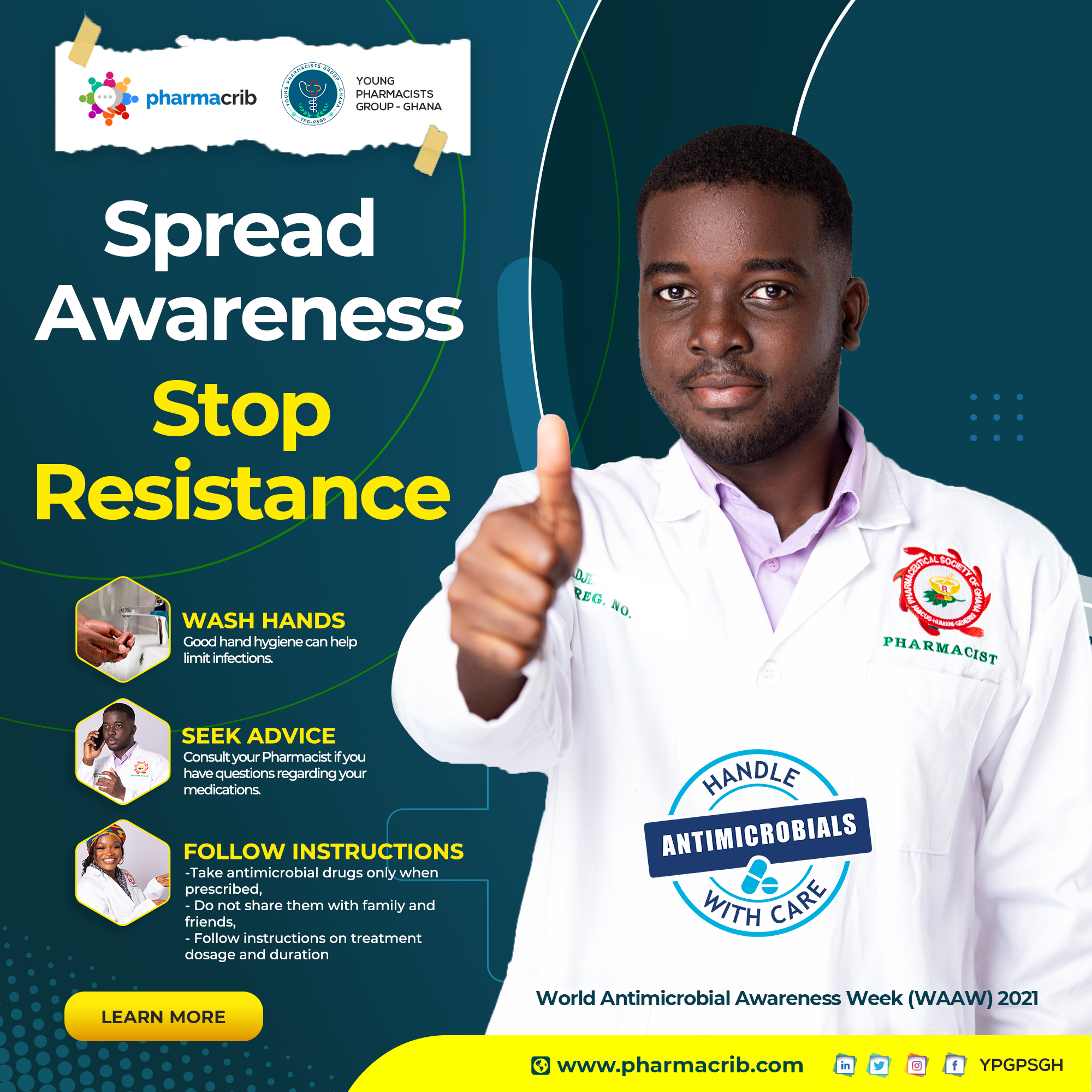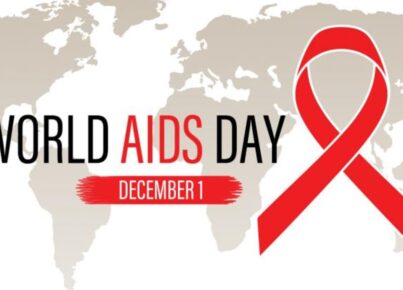Spread Awareness, Stop Resistance
World Antimicrobial Awareness Week (WAAW) is celebrated from 18-24 November every year. The 2021 theme, Spread Awareness, Stop Resistance, calls on One Health stakeholders, policymakers, health care providers, and the general public to be Antimicrobial Resistance (AMR) Awareness champions.
What is Antimicrobial Resistance?
AMR occurs when bacteria, viruses, fungi, and parasites (microbes) no longer respond to medicines, making common infections harder to treat and increasing the risk of disease spread, severe illness and death.
Many factors have accelerated the threat of AMR worldwide—including overuse and misuse of medicines in humans, livestock and agriculture, as well as poor access to clean water, sanitation and hygiene.
Why is AMR increasing?
Why is AMR increasing?Misuse and overuse of antimicrobials in humans, animals and plants are the main drivers in the development of drug-resistant infections. For example, COVID-19 is caused by a virus, not by a bacteria so antibiotics should not be used to treat a COVID infection. Poor diagnostic and prescribing practices and patients not following their treatment also contribute.
Lack of clean water and sanitation in health care facilities, farms and community settings and inadequate infection prevention and control promotes the emergence and spread of drug-resistant infections.
How can you prevent AMR?
To prevent and control the spread of antibiotic resistance, individuals can:
- Only use antibiotics when prescribed by a certified health professional.
- Never demand antibiotics if your health worker says you don’t need them.
- Always follow your health worker’s advice when using antibiotics.
- Never share or use leftover antibiotics.
- Prevent infections by regularly washing hands, preparing food hygienically, avoiding close contact with sick people, practising safer sex, and keeping vaccinations up to date.

- Prepare food hygienically, following the WHO Five Keys to Safer Food (keep clean, separate raw and cooked, cook thoroughly, keep food at safe temperatures, use safe water and raw materials) and choose foods that have been produced without the use of antibiotics for growth promotion or disease prevention in healthy animals.
#health, #health insurance






